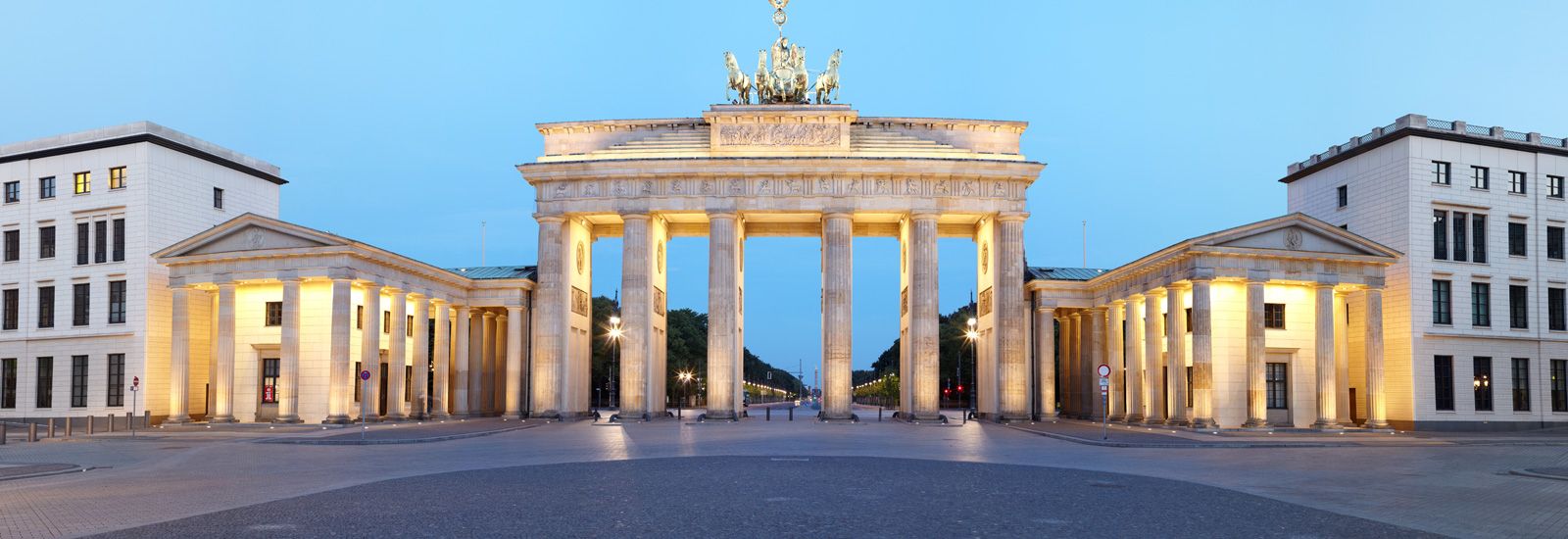
Germany
Oxford’s relationship with Germany is one of its strongest and most treasured. These links are broad, encompassing educating international students, research collaboration and academic exchange.
Notably, Germany has one of the very highest rates of co-publication with Oxford of any country. In addition, German organisations have been partners with Oxford on projects funded by the EU ‘framework programmes’ more frequently than any other country’s.
Oxford also has a major strategic partnership with four Berlin Universities, the Freie Universität Berlin, Humboldt-Universität zu Berlin, Technische Universität Berlin and the Charité – Universitätsmedizin Berlin. Formed in 2017, the Oxford–Berlin Research Partnership aims to support high-quality joint research initiatives across all disciplines of the member institutions.
Germany studies at Oxford
Study and teaching about Germany takes place in departments throughout the University’s academic divisions. There are also several units that concentrate specifically on Germany.
The German department of the Faculty of Medieval and Modern Languages is one of the major centres at Oxford for German studies, and one of the major centres for it in the UK. The department covers German literature, culture and language.
Oxford’s Faculty of Law offers degrees that include a component of study of a European legal system abroad, including German law.
Libraries and museums
The Ashmolean Museum holds a collection of German graphic art which began in 1834 when the antiquary Francis Douce bequeathed his collection to the University. It includes important prints and drawings by Dürer, Holbein, Altdorfer, Grünewald, Burgkmair and other artists of the German Renaissance.
The Bodleian Libraries hold the majority of the papers of Franz Kafka, and are home to the largest Felix Mendelssohn archive outside Berlin. Other notable German holdings at the Bodleian include one of 48 surviving copies of the Gutenberg Bible, and a collection of around 400 medieval Latin manuscripts from the then German-speaking lands.
The Faculty of Music’s Bate Collection of musical instruments is the most comprehensive collection in Britain of European musical instruments, and includes instruments by the most important German makers.
Collaborations with German institutions
Academics at Oxford work collaboratively with their German colleagues across a broad range of disciplines.
Gardens, Libraries and Museums collaborations
Coin Hoards of the Roman Empire, a project run by the Ashmolean Museum and the Oxford Roman Economy Project, is creating an online database of Roman-era coin hoards found in ex-territories of the Roman Empire. A number of German institutions participate: Antike Fundmünzen in Europa (AFE), the Akademie der Wissenschaften und der Literatur Mainz, Goethe University Frankfurt, the Staatliche Museen zu Berlin, the German Archaeological Institute (DAI) and the Römisch-Germanisches Zentralmuseum (RGZM).
Medical Sciences collaborations
LAB282 is a partnership funding drug discovery work at Oxford. It joins Oxford University, the German-headquartered global drug discovery company Evotec, and the Oxford Sciences Innovation investment fund to support the translation of fundamental biological research at Oxford into focused drug discovery programmes. The projects funded by the partnership are able to take advantage of Evotec’s drug discovery expertise and platforms.
EMPA-KIDNEY was a major trial of the drug empagliflozin as a potential treatment for chronic kidney disease. The trial was run by Oxford’s Medical Research Council Population Health Research Unit (PHRU). Substantial funding for the trial was provided by the German pharmaceutical company Boehringer Ingelheim, which was one of the original developers of the drug. The trial was stopped early due to evidence of efficacy and results are expected to be available in late 2024.
Mathematical, Physical and Life Sciences collaborations
The Departments of Engineering Science, Statistics and Computer Science are involved in the multi-national European Laboratory for Learning and Intelligent Systems (ELLIS) network. This initiative aims to ensure Europe remains competitive in artificial intelligence research. AI research centres will be established at a number of European institutions, including Oxford and, in Germany, TU Darmstadt, the University of Freiburg and the Max Planck Institute for Intelligent Systems.
Other links to Germany
Oxford’s Mansfield College operates a study bursary with the University of Göttingen in memory of Adam von Trott zu Solz. Von Trott was a German lawyer and diplomat, who was involved in resistance to Nazism and was executed in 1944 for his involvement in a plot to assassinate Hitler. He had attended, as a student, both Oxford (Balliol and Mansfield Colleges) and Göttingen.
Scholarships and travel assistance
There are many schemes offering funding for international undergraduate students and particularly funding for international graduate students to study at Oxford, as well as schemes to help students already at Oxford travel abroad.
Student societies
Oxford has official clubs and societies for people interested in, or who have a connection to, many different countries and regions.
Oxford alumni in Germany
Oxford has a large number of alumni groups around the world.
Notable German alumni
Among Oxford’s notable German alumni are:
- Norbert Lammert, former president of the Bundestag.
- Adam von Trott zu Solz, a German diplomat who opposed the Nazis and was involved in the July 1944 plot to assassinate Hitler.
- Ernst Schumacher, internationally influential economic thinker.
- Richard von Weizsäcker, former president of West Germany, and then the first president of the reunified Germany.
